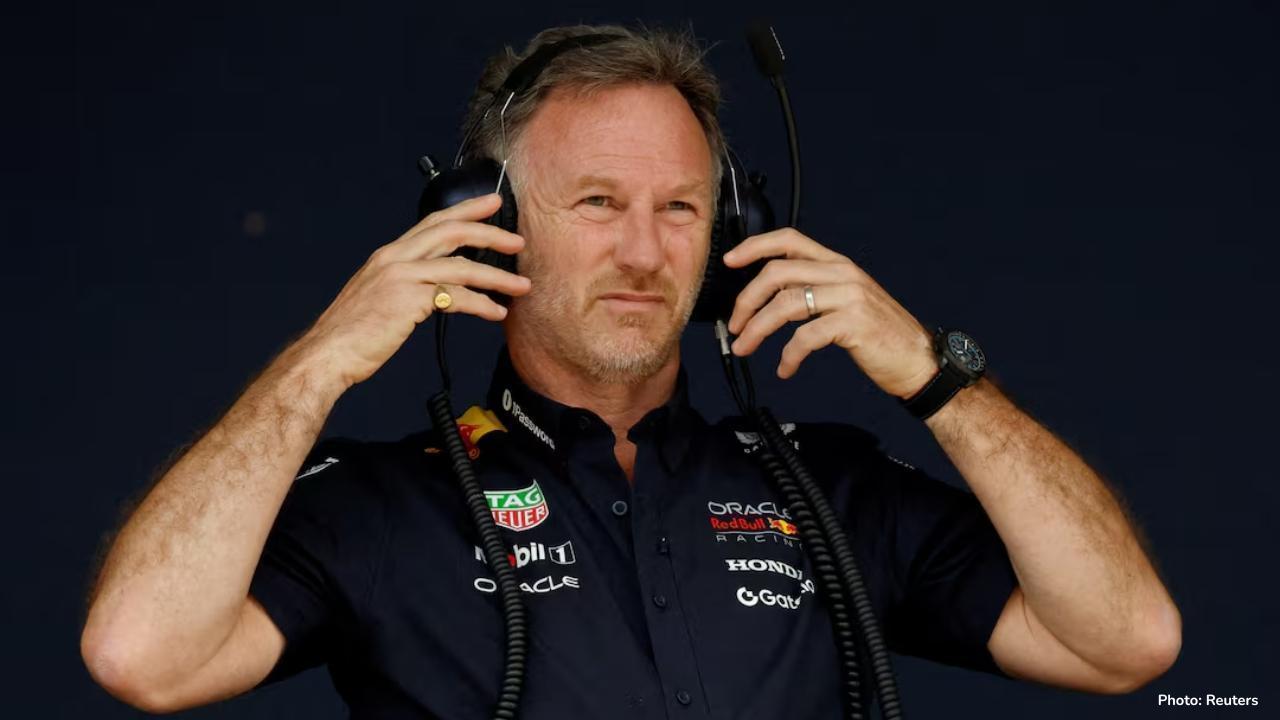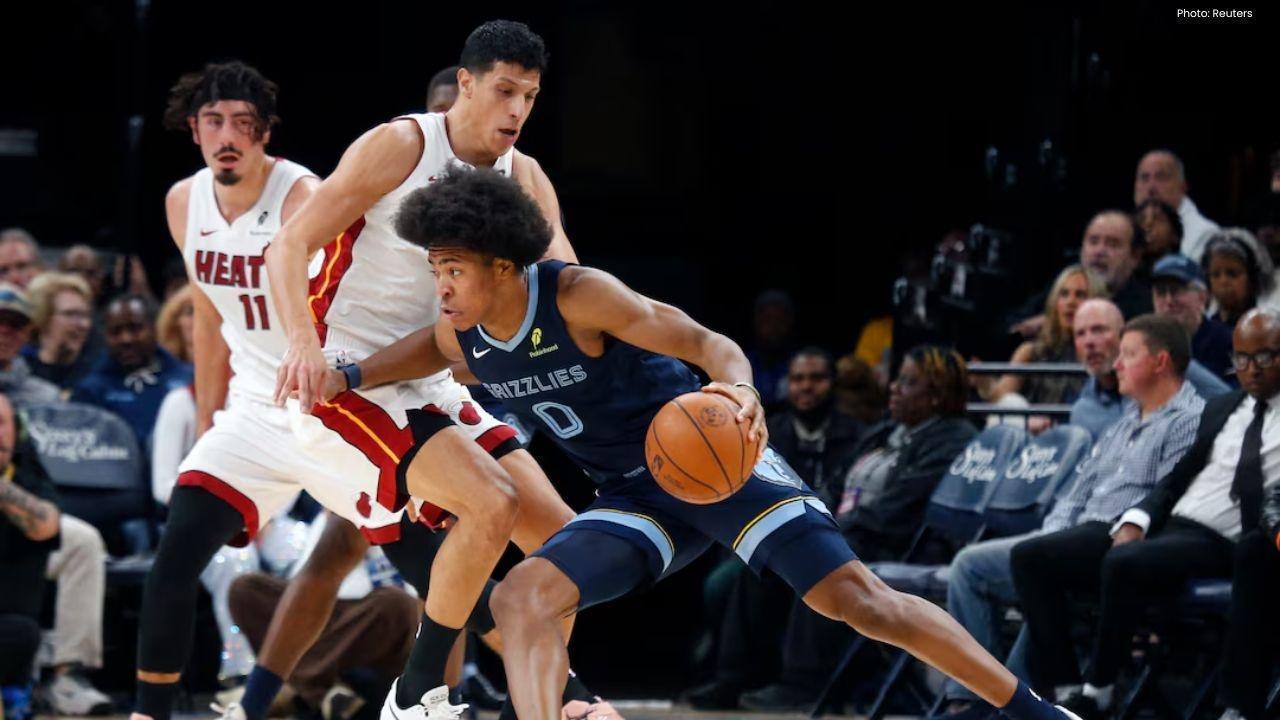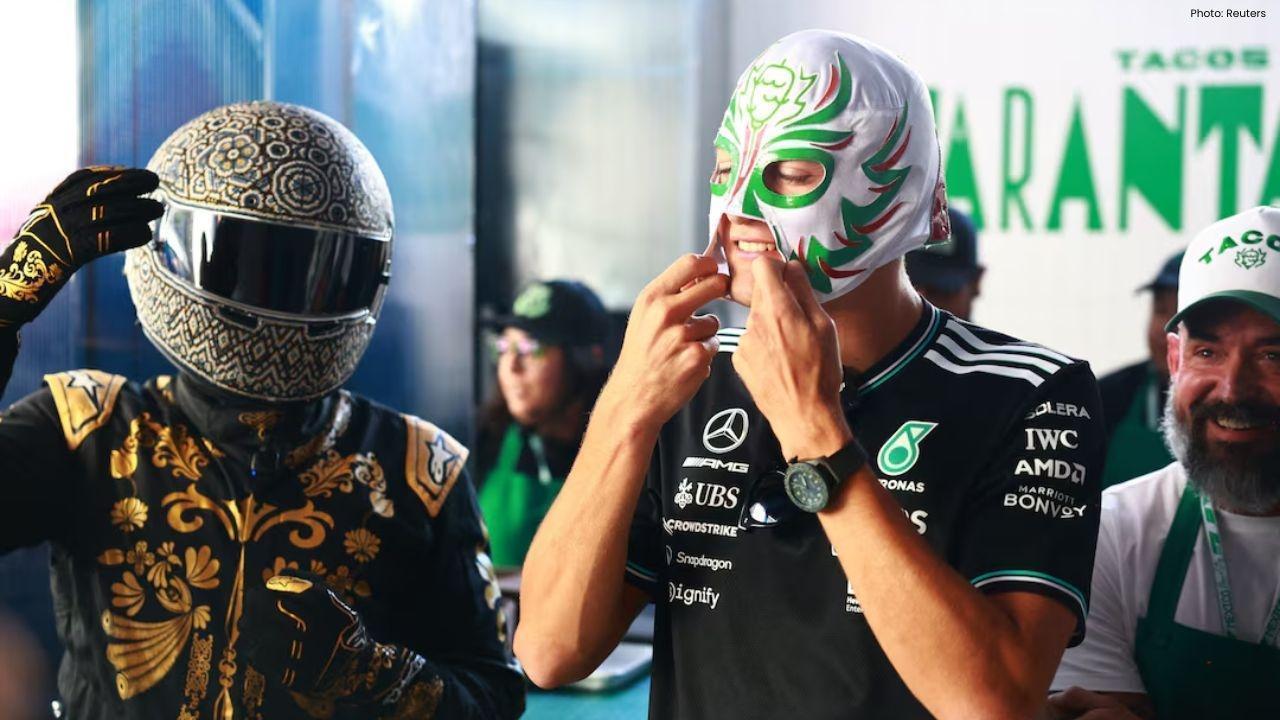
Post by : Monika
In October 2025, Christian Horner, the long-time team principal of Red Bull Racing, left the team after more than 20 years. His departure shocked the Formula 1 world because Horner had played a key role in Red Bull’s success. Under his leadership, Red Bull won eight drivers’ championships and six constructors’ championships, making him one of the most successful managers in F1 history.
Toto Wolff, the team principal and co-owner of Mercedes, shared his views on Horner’s exit. Wolff described it as a “timely reminder” that in Formula 1, no one is bigger than the sport itself.
He compared F1 to a solar system, where every person is important, but no one should think they are at the center. Wolff explained that the sport moves quickly, and even the most successful people need to stay humble and focused.
Horner’s Career and Influence
Christian Horner joined Red Bull Racing in 2005 when the team was still small and growing. He helped transform it into a global powerhouse. During his time, Red Bull became known for its innovation, strong teamwork, and ability to compete with legendary teams like Ferrari and Mercedes. Horner also played a major role in nurturing top drivers like Sebastian Vettel and Max Verstappen, guiding them to world championships.
Horner’s departure marks the end of an era for Red Bull Racing. Many fans and experts said it was the end of a leadership style that combined strict discipline with creativity and innovation. Despite leaving, Horner is respected across Formula 1 for his ability to manage a team under pressure and achieve incredible results.
Wolff’s Reminder to Leaders
Toto Wolff used the opportunity to reflect on leadership in Formula 1. He said Horner’s exit shows that no matter how powerful or successful someone is, the sport comes first. Wolff said leaders should not let their ego control decisions or behavior. Instead, they should be humble, focused, and work as part of a team.
Wolff also said that he expects Horner may return to F1 in some capacity in the future. However, the sport is fast-moving, and things can change quickly. He compared the paddock to a solar system, emphasizing that while every person has an important role, the sport itself is the center. This idea is a lesson for all people involved in Formula 1, from team principals to engineers and drivers.
Humility and Self-Reflection in Leadership
Wolff talked about the importance of humility for leaders. He said that in the high-pressure world of F1, it is easy for people to let their personalities dominate. Leaders must be able to self-reflect and admit when they have made mistakes. He jokingly said that he asks himself, “Have I been a little bit of an idiot today?” This lighthearted comment reflects the serious idea that self-awareness is key to being a good leader.
He also explained that humility helps leaders handle pressure. F1 is not just about cars and speed; it’s about people working together under intense stress. Leaders who are humble and open to feedback create a positive environment where everyone can perform at their best.
Wolff’s Personal Experience
Toto Wolff shared that his personal life and experiences helped him stay grounded. He mentioned his wife, Susie Wolff, a former race driver who now manages the all-female F1 Academy. Her perspective and advice help him stay focused on the bigger picture rather than getting lost in the pressures of competition.
Wolff also spoke about the loss of his father at a young age. His father died of brain cancer, and Wolff explained that this early hardship shaped his attitude toward life and leadership. He said it taught him to value humility and to never take success for granted. This background gives him a clear understanding of the importance of perspective in leadership.
Team Dynamics and Honest Feedback
Another key point Wolff made was the importance of team dynamics. He said a leader cannot succeed alone. It is essential to have a team that is willing to give honest feedback, even when it is uncomfortable. He admitted that he can be emotional at times, but having team members who speak up helps him make better decisions.
In Formula 1, where decisions can mean the difference between winning and losing races, having a team that can challenge a leader respectfully is crucial. Wolff believes that this kind of teamwork and mutual respect is more important than any individual ego.
The Role of Humor and Perspective
Despite the serious lessons about leadership, Wolff also showed his sense of humor. He compared the Formula 1 paddock to a western movie. He described himself as “the good,” Ferrari’s Fred Vasseur as “the ugly,” and hinted that Horner had his own unique role in the story. This playful comparison highlights the competitive but friendly nature of the F1 world, showing that even under pressure, there is room for perspective and humor.
Impact on Formula 1
Horner’s exit also has practical implications for Formula 1. Red Bull Racing must now adjust to a new leadership structure. The team will need to find a replacement who can continue the winning tradition while respecting the culture Horner helped create.
Wolff emphasized that the sport must continue to move forward. Formula 1 is constantly evolving, and changes in leadership are part of that evolution. Teams, drivers, and fans all play a role in maintaining the balance and competitiveness of the sport. Horner’s departure is a reminder that the sport itself is bigger than any individual.
Lessons for Future Leaders
Wolff’s reflections offer lessons for all current and future leaders in F1. First, humility is essential. No matter how successful someone is, they must remain aware of their place within the sport. Second, self-reflection helps leaders learn from mistakes and improve. Third, having a team that provides honest feedback strengthens leadership and performance.
Finally, Wolff’s thoughts show that leadership in F1 is about balance. It is about achieving results while respecting others, staying grounded, and understanding the bigger picture. These lessons apply not just in sports, but in any high-pressure leadership situation.
Christian Horner’s departure from Red Bull Racing marks the end of a highly successful era. While it is a significant change, it also provides an opportunity for reflection on leadership, humility, and teamwork in Formula 1.
Toto Wolff’s comments remind everyone involved in the sport that no individual is bigger than F1 itself. Leaders must stay humble, maintain perspective, and prioritize the team and the sport over personal ego. By embracing these principles, Formula 1 can continue to thrive, remain competitive, and inspire fans around the world.
Horner’s exit may also serve as a lesson for younger F1 leaders and future team principals. It highlights that success is temporary and that continuous growth, self-awareness, and respect for the sport are key to a lasting legacy.
In the fast-moving world of Formula 1, the spotlight often shifts quickly, but the values of humility, teamwork, and dedication remain constant. Leaders like Toto Wolff and Christian Horner, through their actions and reflections, help shape a culture where the sport comes first, ensuring that Formula 1 continues to excite fans and challenge competitors for years to come.










NBA Friday Recap: Powerhouse Wins for Miami, LA, Milwaukee, and Clippers
Miami, LA Lakers, Milwaukee, and Clippers triumphed in a thrilling NBA Friday, showcasing standout p

Doncic Shines with 49 Points in Lakers' 128-110 Victory over Timberwolves
Luka Doncic dazzles with 49 points as the Lakers secure a 128-110 win against the Timberwolves, show

Kings Triumph Over Jazz 105-104 with Last-Minute Sabonis Effort
The Sacramento Kings edged out the Utah Jazz 105-104, with Domantas Sabonis making the decisive shot

Argentina's Friendly Match Against India Delayed, New Date to be Announced
The friendly match between Argentina and India in Kochi has been postponed due to FIFA approval dela

Rohit and Kohli Conclude ODI Journeys in Australia with a Victory
Rohit Sharma and Virat Kohli bid adieu to Australian ODIs with a final win, forming a 168-run partne

George Russell's Wrestling Mask Antics at Mexican Grand Prix
George Russell donned a wrestling mask to enjoy the Mexican Grand Prix from the stands, providing a